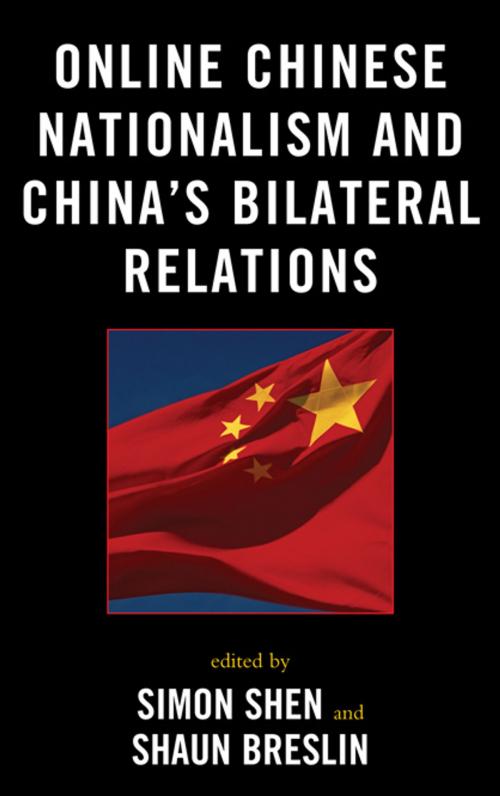Online Chinese Nationalism and China's Bilateral Relations
Nonfiction, History, Asian, China, Computers, Internet, Social & Cultural Studies, Political Science| Author: | Winnie King, Chun-wing Lee, Kai-chi Leung, Shih-diing Liu, Yaling Pan, James Reilly, Sow Keat Tok, Benson Wai-kwok Wong, Chun Zhang | ISBN: | 9780739132494 |
| Publisher: | Lexington Books | Publication: | March 18, 2010 |
| Imprint: | Lexington Books | Language: | English |
| Author: | Winnie King, Chun-wing Lee, Kai-chi Leung, Shih-diing Liu, Yaling Pan, James Reilly, Sow Keat Tok, Benson Wai-kwok Wong, Chun Zhang |
| ISBN: | 9780739132494 |
| Publisher: | Lexington Books |
| Publication: | March 18, 2010 |
| Imprint: | Lexington Books |
| Language: | English |
Since the Chinese were officially plugged into the virtual community in 1994, the usage of the internet in the country has developed at an incredible rate. By the end of 2008, there were approximately 298 million netizens in China, a number which surpasses that of the U.S. and ranks China the highest user in the world. The rapid development of the online Chinese community has not only boosted the information flow among citizens across the territory, but has also created a new form of social interaction between the state, the media, various professionals and intellectuals, as well as China's ordinary citizens. Although the subject of this book is online Chinese nationalism, which to a certain extent is seen as a pro-regime phenomenon, the emergence of an online civil society in China intrinsically provides some form of supervision of state power-perhaps even a check on it. The fact that the party-state has made use of this social interaction, while at the same time remaining worried about the negative impact of the same netizens, is a fundamental characteristic of the nature of the relationship between the state and the internet community. Many questions arise when considering the internet and Chinese nationalism. Which are the most important internet sites carrying online discussion of nationalism related to the author's particular area of study? What are the differences between online nationalism and the conventional form of nationalism, and why do these differences exist? Has nationalist online expression influenced actual foreign policy making? Has nationalist online expression influenced discourse in the mainstream mass media in China? Have there been any counter reactions towards online nationalism? Where do they come from? Online Chinese Nationalism and China's Bilateral Relations seeks to address these questions.
Since the Chinese were officially plugged into the virtual community in 1994, the usage of the internet in the country has developed at an incredible rate. By the end of 2008, there were approximately 298 million netizens in China, a number which surpasses that of the U.S. and ranks China the highest user in the world. The rapid development of the online Chinese community has not only boosted the information flow among citizens across the territory, but has also created a new form of social interaction between the state, the media, various professionals and intellectuals, as well as China's ordinary citizens. Although the subject of this book is online Chinese nationalism, which to a certain extent is seen as a pro-regime phenomenon, the emergence of an online civil society in China intrinsically provides some form of supervision of state power-perhaps even a check on it. The fact that the party-state has made use of this social interaction, while at the same time remaining worried about the negative impact of the same netizens, is a fundamental characteristic of the nature of the relationship between the state and the internet community. Many questions arise when considering the internet and Chinese nationalism. Which are the most important internet sites carrying online discussion of nationalism related to the author's particular area of study? What are the differences between online nationalism and the conventional form of nationalism, and why do these differences exist? Has nationalist online expression influenced actual foreign policy making? Has nationalist online expression influenced discourse in the mainstream mass media in China? Have there been any counter reactions towards online nationalism? Where do they come from? Online Chinese Nationalism and China's Bilateral Relations seeks to address these questions.















